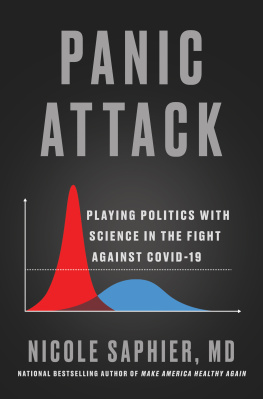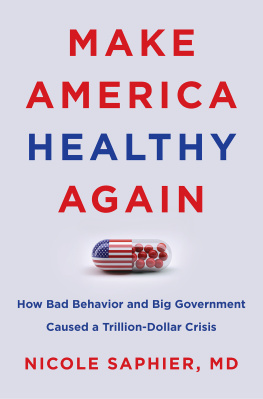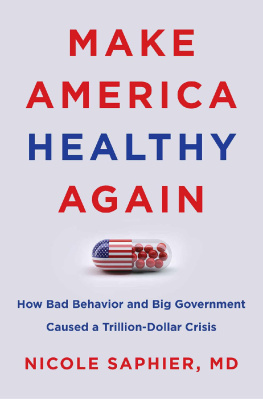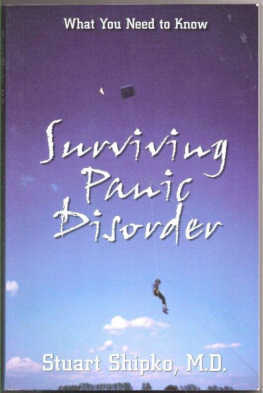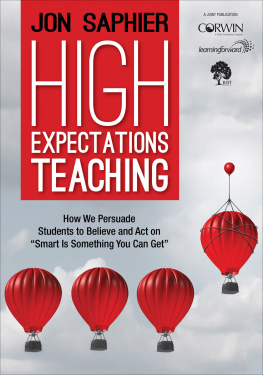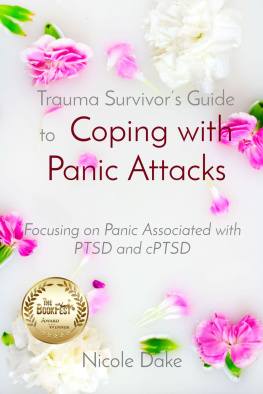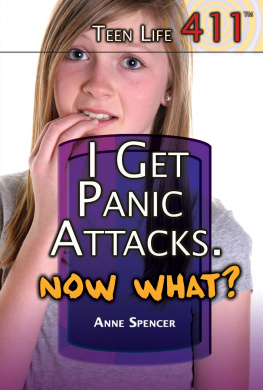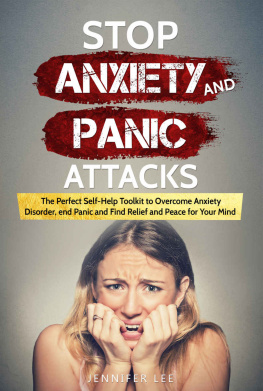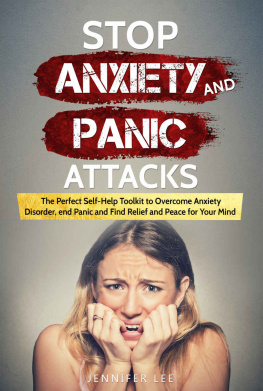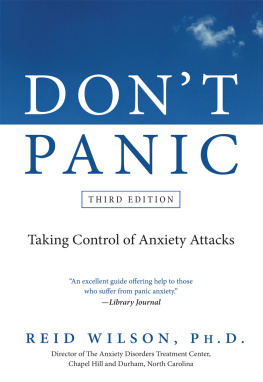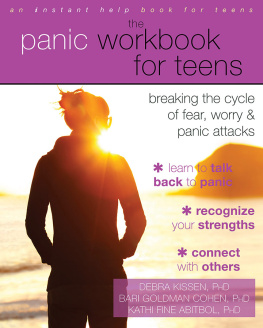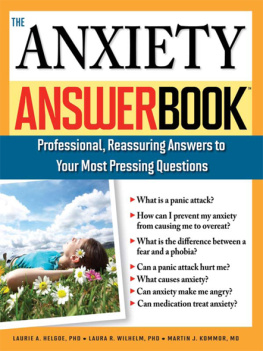Nicole Saphier - Panic Attack
Here you can read online Nicole Saphier - Panic Attack full text of the book (entire story) in english for free. Download pdf and epub, get meaning, cover and reviews about this ebook. year: 2021, publisher: Broadside e-books, genre: Politics. Description of the work, (preface) as well as reviews are available. Best literature library LitArk.com created for fans of good reading and offers a wide selection of genres:
Romance novel
Science fiction
Adventure
Detective
Science
History
Home and family
Prose
Art
Politics
Computer
Non-fiction
Religion
Business
Children
Humor
Choose a favorite category and find really read worthwhile books. Enjoy immersion in the world of imagination, feel the emotions of the characters or learn something new for yourself, make an fascinating discovery.
- Book:Panic Attack
- Author:
- Publisher:Broadside e-books
- Genre:
- Year:2021
- Rating:3 / 5
- Favourites:Add to favourites
- Your mark:
- 60
- 1
- 2
- 3
- 4
- 5
Panic Attack: summary, description and annotation
We offer to read an annotation, description, summary or preface (depends on what the author of the book "Panic Attack" wrote himself). If you haven't found the necessary information about the book — write in the comments, we will try to find it.
Panic Attack — read online for free the complete book (whole text) full work
Below is the text of the book, divided by pages. System saving the place of the last page read, allows you to conveniently read the book "Panic Attack" online for free, without having to search again every time where you left off. Put a bookmark, and you can go to the page where you finished reading at any time.
Font size:
Interval:
Bookmark:
This book was written in honor of the frontline
workers, who despite the tumultuous landscape and
plethora of misinformation, continued to work
tirelessly during the COVID-19 crisis.
We pass through this world but once. Few tragedies can be more extensive than the stunting of life, few injustices deeper than the denial of an opportunity to strive or even to hope, by a limit imposed from without, but falsely identified as lying within.
S TEPHEN J AY G OULD
At this point, we are all so used to having to wash our hands many times a day, put on masks, and practice social distancing that it sometimes feels as though COVID-19 has been around forever. A colleague recently remarked to me that when he watches old television series, he finds himself worrying that the characters in the show are standing too close to one another. Just as the buildings in New York City are classified as prewar versus postwar, it would seem television shows, and all things as we have known them, are soon to be known as pre-COVID and post-COVID.
If you turn on the car radio, it is hard to escape nonstop talk about the virus. The same goes for social media. All of this dialogue would be great if it were all accurate. Unfortunately, much of the conversation is grounded in rumors and, you guessed itpanic. Accusations, rhetoric, and paranoid doomsday scenarios are mingled in with facts. It is sometimes hard to tell what is real and what is not.
Of all the words that we most commonly hear these days in the wake of the pandemic, perhaps the most pervasive and powerful are those that have to do with fear. People are understandably afraidfor their childrens futures, for their own lives, for the most vulnerable among us, and for our future as Americans.
Lurking within the fear is anger, and anger, as most of us know from experience, comes with a desire to assign blamesomething or someone to be designated as the source of our pain.
The anger is not limited to domestic foes, as there is also anger toward the Chinese Communist government for concealment of information, and allowing infected people to travel internationally after it was known that the virus was being transmitted among humans.
Understandably, there is anger about the ensuing loss of lifeabout the anguish of senior citizens dying alone from direct orders by predominantly Democratic governors. Anger for children being tossed aside by partisan politics and the legislators responsible who caved to political pressure and ignored all childhood health experts. All the while, these people were claiming to follow the science.
There is anger about the authoritarian shutdown of businesses, and the destruction of the American Dream for millions of Americans, despite science saying otherwise. Not to mention the fallout from universal financial insecurity, with many under the pressure of lockdown succumbing to addictions that they had previously overcome or the emergence of new mental and physical health maladies.
Panic Attack is what happens when one party declares they are the party of science and then assumes everything they want to be true is now scientific.
Many measures enforced by politicians everywhere, with the majority being Democratic, ignored common sense and scientific data as they shut down beaches, playgrounds, and National Parks while allowing Big Business to remain open. Governor Gretchen Whitmer banned the purchase of seeds, a purchase that would have encouraged people to be outdoors instead of inside in poorly ventilated spaces. People were allowed to continue packing the Goliath mega-stores yet unable to jog alone on a path without wearing a mask.
Through the stories of these and other unscientific policies, I will explore two ideas. The first is about how experts make their recommendations. The same qualities that give experts their strengththeir certainty over complicated thingsturn out to also be their greatest weakness. Their lack of transparency, appeals to authority, and poor science communication made their advice seem arbitrary, high-handed, and pointless.
The entire mantra that a single political party was following the science while the other was not was wiped away over the course of the pandemic as the hypocrisy of do what I say, not what I do played out in various avenues while Americans everywhere were suffering.
Some of this comes from experts telling us their conclusions without explaining how they got there. Much of it comes from politicians cherry-picking the expert conclusions they want. As a society, we consistently get these conflicts that support their chosen agenda. We misread who the conflict is among. We misinterpret what the expert consensus is. We get lost when two experts we trust seem to be saying opposite things. If they cant explain, we cant understand.
Resentment has grown from how American public discourse has changed since the unprecedented events of 2020 began. More specifically, people are angry about the fact that, these days, it seems only one set of opinions is allowed. If they deviate, if they question, they are defectors. More than that, by virtue of being defectors, they are de facto deplorables, who should be denounced, fired, and canceled. We shouldnt have to explain anything, politicians said. Because we are right.
So-called progressives, like the rest of us, sometimes judge based on opinions rather than knowledge, especially when we feel fear. Except, part of being a citizen of a constitutional, democratic republic is that each of usand all of us, collectivelyhave the right and the opportunity to use our own reason to move beyond opinions, through experiment, to facts and truth. We can pursue the truth individually and jointly. Through that pursuit, we can acquire knowledge, and knowledge, as the 17th-century philosopher Francis Bacon once stated, is power. In our current moment, power seems to lie in stirring up fear. We need, then, to recover a different, more constructive kind of powerthe power inherent in truth. No single person owns the truth. It belongs to everyone.
When pundits, experts, and legislators alike denied, or at least downplayed, the growing humanitarian crisis caused by the pandemic response as not being real or scientifically measurable, faith in them was lost by those who were living through it. Its not surprising the populace wants to hear more than Trust us when life is on the line.
To be sure, we face obstacles. Among these obstacles are false, self-proclaimed prophets, who strive to weaponize peoples fears and then manipulate those worries to secure support for themselves or their YouTube videos or other platform. These individuals may use real experts mistakes as proof of their own expertise. The bottom line is, any critic can find something to confirm their own individual narrative. The great advances in life are not made primarily or exclusively through our own aggrandizement while criticizing others. Dont get me wrongits important to practice critical thinking and not blindly toe the line, with respect to both our own opinions and those of others. Thus, an open dialogue of conflicting opinion under the auspices of mutual regard and transparency is the only way for a civilized society to be unified.
The problem is, most experts do not spend time preparing to see their work abused by Twitter reply guys or their big-city mayor. This is never the battle they expect to fight. Experts are great at providing informationtheyre not great at communicating it in ways that prevent power-hungry and panicked politicians from using that information to achieve partisan goals.
Which brings me to my second point: the politicizing of science makes the job of scientific discovery much harder. Not only does it influence important research, but it can also close off important deliberations on the outcomes. As the normal process, mixed with nefarious intentions, unfolded in front of the public eye, the entire course undermined public faith in science when the politics influencing it turned out to be wrong. Not to mention, while there is merit to clinical trials, we became increasingly aware of the endless suffering and excess death occurring from regulatory inaction and political influence.
Font size:
Interval:
Bookmark:
Similar books «Panic Attack»
Look at similar books to Panic Attack. We have selected literature similar in name and meaning in the hope of providing readers with more options to find new, interesting, not yet read works.
Discussion, reviews of the book Panic Attack and just readers' own opinions. Leave your comments, write what you think about the work, its meaning or the main characters. Specify what exactly you liked and what you didn't like, and why you think so.

